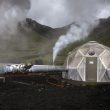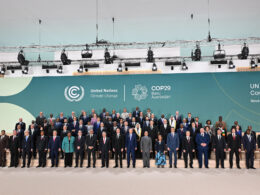The future of global climate action could hinge on continued access to reliable, high-quality environmental data. In response to concerns over the loss of key resources, sustainability software firm Watershed has partnered with the Stanford Sustainable Solutions Lab to launch Cornerstone, an initiative aimed at preserving and expanding access to foundational datasets used in carbon accounting and environmental modelling.
The move follows the announcement that the United States Environmental Protection Agency (EPA) will no longer support the development of its Environmentally-Extended Input-Output (USEEIO) Models. These models, along with Watershed’s Open Comprehensive Environmental Data Archive (CEDA), are among the most widely used tools for measuring Scope 3 emissions — accounting for around 65% of such calculations globally.
Effective immediately, Cornerstone will act as the open-access repository for both USEEIO and CEDA. Over the coming months, the two models will be merged into a single, global, open multi-regional input-output model. This integrated system is expected to improve the accuracy of Scope 3 emissions reporting and expand environmental assessments to cover air and water quality, water use, and waste generation.
The project brings together leading experts in environmental modelling. Dr Wesley Ingwersen, former EPA lead and architect of the USEEIO model, will serve as Technical Director. Dr Sangwon Suh, Watershed’s Head of Science and developer of CEDA, and Dr Steve Davis, Professor at the Stanford Doerr School of Sustainability, will act as Technical Advisors.
According to the partners, Cornerstone will not only maintain open access to these datasets but will also promote research and innovation, build a global community of practitioners, and offer training in the use of environmentally-extended input-output data.





















